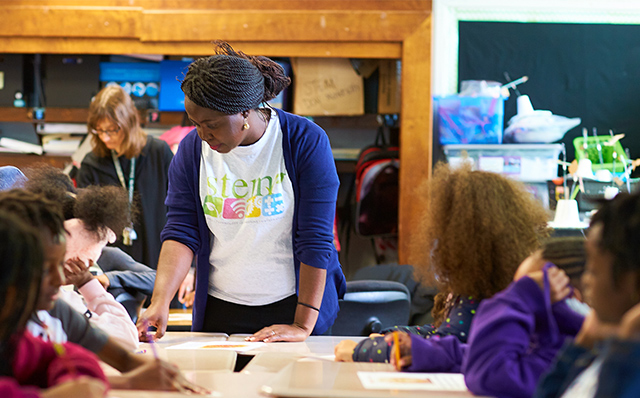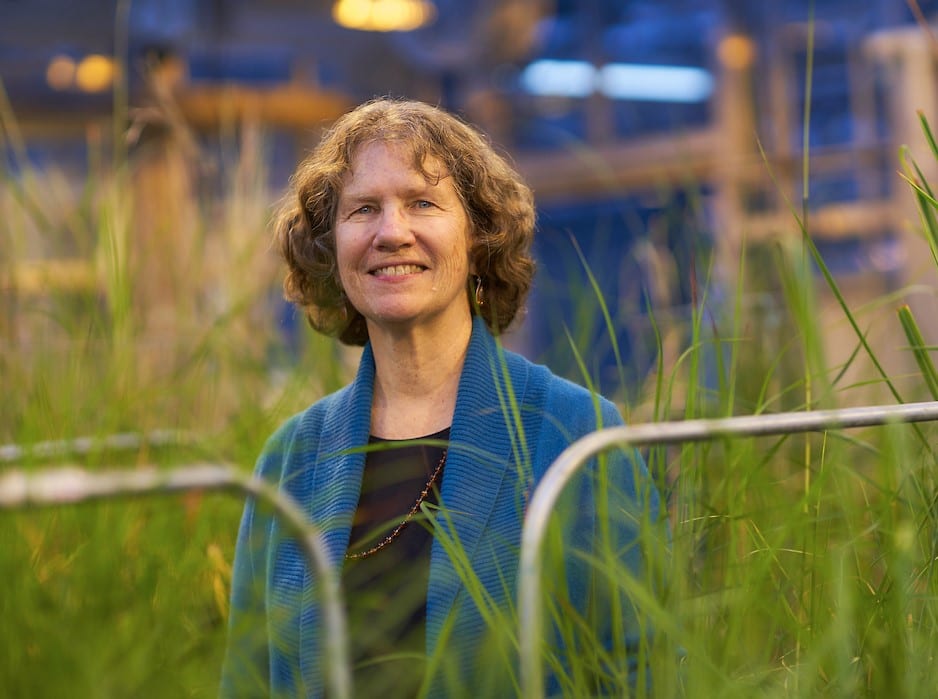Beginning with Biology
As a Senior Research Scientist in the Danforth Center’s Education Research and Outreach Lab (EROL), Ruth J. Kaggwa Asiimwe’s work blends science, education, and research, with the goal of making STEM fields equally accessible to all.
Her own education journey began in Uganda, where she obtained a bachelor’s degree in agriculture and a master’s in crop sciences at Makerere University. She’d always had a talent for biology, but it wasn’t until she was working as a doctoral student with Guangyao Wang’s lab at the University of Arizona that she became captivated by the intricacies of plants during a course on the mechanisms of plant development. “I found the intricacies of signal transduction in plants to be not only riveting but also genuinely exciting,” she says. “That was when my interest in plant biology was truly sparked.”

Today, Ruth J. Kaggwa Asiimwe’s work blends science, education, and research; her journey began with a strong foundation in plant science.
From Plants to People
Five years ago, Ruth shifted her focus. A plant scientist herself, she is now working towards a world where a career in science is within reach for all. Her education-focused research aims to create a reality where all aspiring scientists have equal access to pursue careers in STEM. “As an education researcher, my goal is to contribute to narrowing the STEM academic achievement and opportunity gap between racially minoritized students and their peers,” Ruth says.
She is particularly interested in understanding how a variety of social systems can be improved to better serve under-resourced and racially minoritized students. Her research develops, implements, and assesses outcomes of STEM learning interventions like authentic research experiences, culturally responsive and relevant curricula, and effective professional development approaches.
One example of this research is examining how undergraduate students at a local Historically Black College/University (HBCU) build data science knowledge and gain self-efficacy in a Course-based Undergraduate Research Experience (CURE). Another project implements novel, culturally responsive, and relevant STEM curricula and explores the impact on various non-cognitive constructs like STEM identity, and STEM engagement of racially minoritized K-12 grade students.

Ruth’s education-focused research aims to create a reality where all aspiring scientists have equal access to pursue careers in STEM.
“Nearly 25% of the U.S. population is employed in STEM occupations,” Ruth says, “but the disproportionately low representation of racially minoritized groups within these fields is concerning. The imbalance directly affects livelihoods, communities, and cities, hindering the full transformational potential of STEM in shaping various aspects of our society.”
Through her research, Ruth is helping to rectify that imbalance. Knowing that she is a part of that effort motivates her every day.
“I appreciate the direct transformative impact that my STEM education research has had on shaping career trajectories, influencing educational aspirations, and enhancing livelihoods within predominantly racially minoritized communities that are often underserved and under-resourced,” she says. “Our efforts have ignited a newfound interest in STEM learning and careers, contributing to positive change.”


